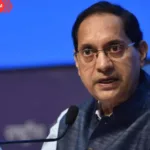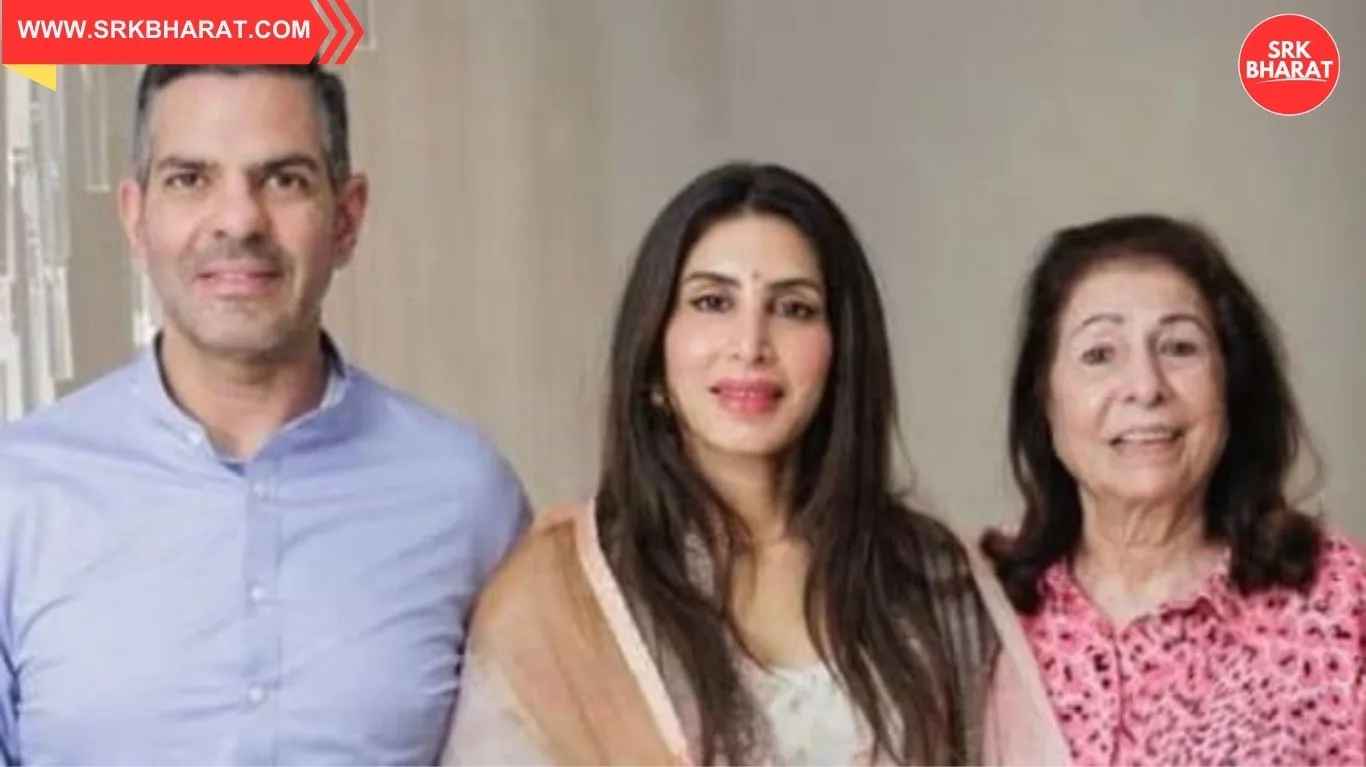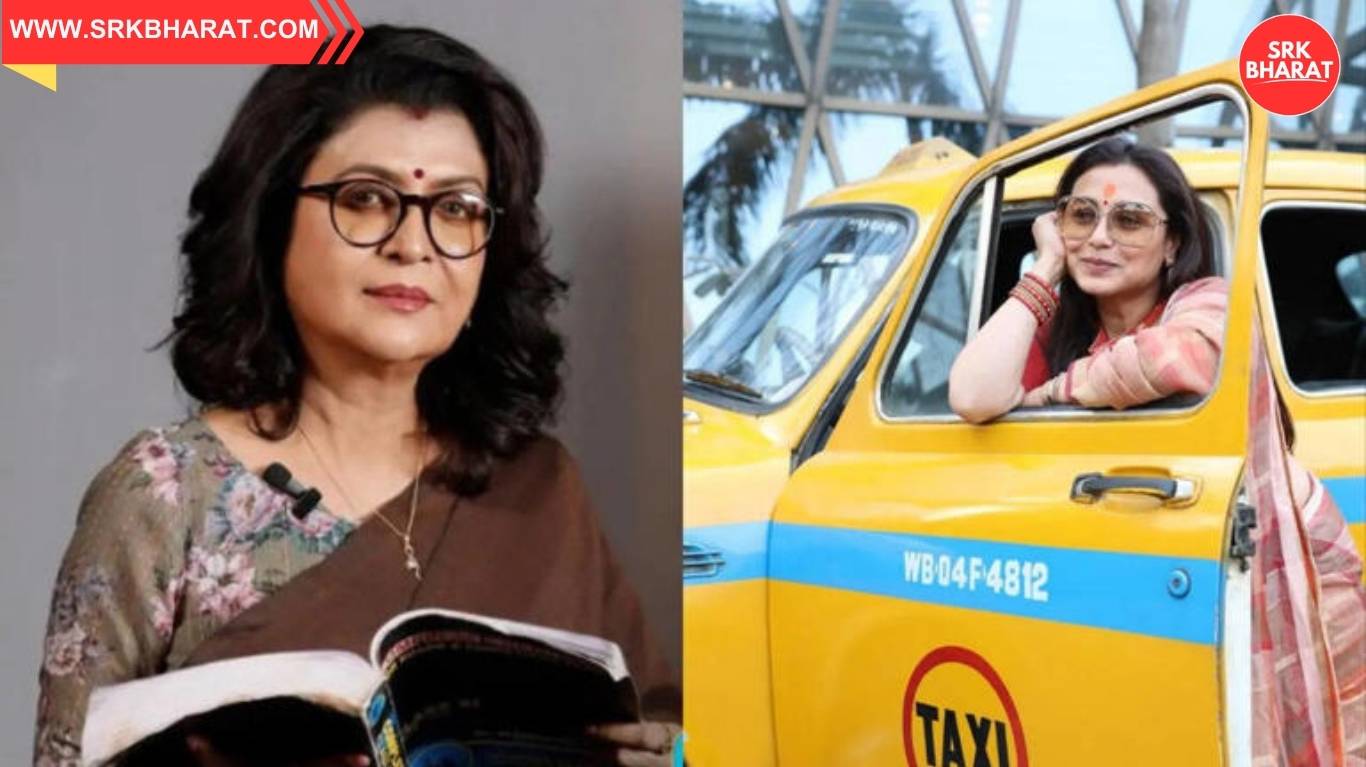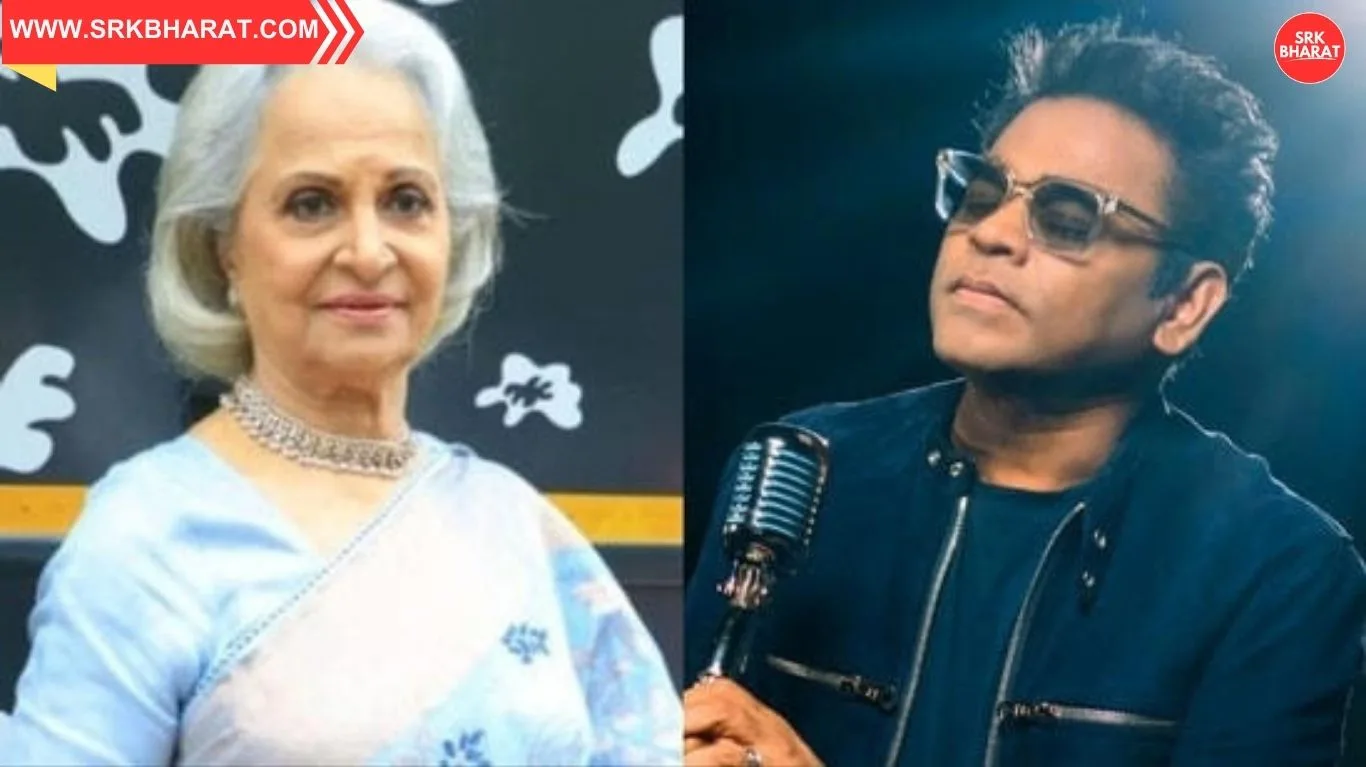In a bold and refreshingly honest take on the complexities of relationships and societal norms, Bollywood actress Fatima Sana Shaikh has opened up about the emotional toll that patriarchy takes—not just on women but on men as well. The Dangal and Ludo star, known for her fierce roles and outspoken personality, has brought attention to an often-overlooked aspect of gender dynamics: the way patriarchal expectations emotionally burden men, who are seldom given the space to express vulnerability.
In a candid interview during a recent interaction with the media, Fatima said, “Patriarchy isn’t just a women’s issue. Men too are ridiculed if they cry, if they choose to stay at home, or show softness. We all suffer in different ways.” Her comments have ignited a much-needed conversation around the emotional suppression faced by men, and how the traditional framework of masculinity needs a shift in public understanding.
Breaking the Stereotypes: Fatima’s Bold Commentary on Modern Relationships
Fatima Sana Shaikh, who rose to fame portraying wrestler Geeta Phogat in Dangal, is no stranger to challenging norms—on-screen and off. When asked about relationships in today’s world, the actress shared a perspective that cuts through clichés.
“Love is beautiful, but relationships are hard work. In our society, there’s this idea that men must always be providers, unemotional, or aggressive. And women must be adjusting, silent, and sacrificial. That’s changing, slowly. But we have a long way to go,” she said.
She elaborated further that in her own life, she’s seen friends and men she’s dated struggle with emotional expression. “One guy I knew never cried in front of anyone, because he was told from childhood, ‘men don’t cry’. He bottled everything inside, and that led to a breakdown,” Fatima revealed.
Her comments hit a nerve with many, particularly among Gen Z and millennial audiences who are challenging traditional gender norms.
What Fatima Said and Why It Matters
Fatima’s statements not only reflect her personal experiences but resonate with the growing sentiment among progressive circles in India—that gender stereotypes are harmful to everyone.
Key Points from Fatima Sana Shaikh’s Statement:
| Theme | Fatima’s Observation |
|---|---|
| Patriarchy’s effect on men | “Even men suffer, they are ridiculed if they cry or stay at home.” |
| Emotional vulnerability | “We are not raising boys to feel. And then we blame them for not being expressive.” |
| Role in relationships | “People forget that both partners are equally responsible to make things work.” |
| Gender expectations | “Women are told to adjust. Men are told to dominate. Where’s the equality in that?” |
| Rewriting the narrative | “It’s time we allow people to be who they are, not force them into gender roles.” |
The Emotional Costs of Masculinity in Patriarchal Cultures
Fatima’s words mirror the findings of various psychological studies that show how toxic masculinity—the societal expectations that men must always be tough, stoic, and dominant—can severely impact mental health.
In India, according to a National Mental Health Survey, men are less likely than women to seek therapy or talk about emotional issues. Suicide rates are also disproportionately high among Indian men, especially between the ages of 18–35. The pressure to perform, provide, and suppress emotions often leads to burnout, depression, and even violent behavior.
Shifting Public Perception: Bollywood’s Changing Voice
Bollywood, traditionally seen as a conservative space where heroes fit into alpha male molds, is slowly evolving. With actors like Ayushmann Khurrana (Shubh Mangal Zyada Saavdhan), Vicky Kaushal (Sam Bahadur), and now actresses like Fatima speaking openly about gender fluidity, mental health, and emotional equality, conversations are beginning to move forward.
Fatima’s comments add to this shift, reinforcing the idea that vulnerability is strength, not weakness. It aligns with a growing number of celebrities challenging the archaic notions of masculinity and encouraging healthy emotional expression.
Fatima’s Career and Personal Growth
Fatima Sana Shaikh has come a long way since her breakout role. Her recent projects, including Modern Love Mumbai and Thar, have allowed her to explore diverse emotional terrains on-screen. Off-screen too, she’s known for her no-holds-barred attitude when discussing personal topics like health, gender, or relationships.
She has spoken openly about her struggle with epilepsy and how the industry’s lack of awareness about such conditions makes it harder for actors to cope. This further adds credibility to her recent statements—she is someone who speaks from personal experience, not just ideology.
How Fans and Critics Responded
The reactions to Fatima’s statement on social media were mostly positive. Netizens applauded her for bringing attention to an issue that is rarely discussed in public forums, especially by female celebrities.
“Thank you Fatima for saying what needed to be said. Men cry too. Men hurt too,” wrote one user on X (formerly Twitter).
Others expressed admiration for her boldness, with many young men sharing their own stories of emotional repression and how difficult it is to seek emotional support in patriarchal setups.
India’s Evolving Relationship Dynamics
Fatima’s observations come at a time when Indian urban culture is seeing a gradual shift in relationship roles. According to a recent urban lifestyle survey, more than 64% of young Indian couples now believe in shared emotional responsibilities, and nearly 47% of men feel they lack emotional outlets.
This evolution, though slow, is being accelerated by open conversations from public figures like Fatima. With increased awareness, couples are now seeking emotional balance as much as financial or familial alignment.
Educational Impact and Cultural Messaging
Statements like Fatima’s can also inspire educational curriculum reform and better gender sensitivity training in schools. Teaching children from a young age that crying, vulnerability, or caregiving is not gender-specific could reduce the damage caused by years of unbalanced societal conditioning.
Her comments might also influence content creators to explore more emotionally intelligent male characters, diversifying role models for the next generation.
Conclusion
Fatima Sana Shaikh’s thoughtful take on patriarchy and its dual-edged impact offers a balanced, empathetic view of modern gender dynamics. By calling attention to how even men are harmed by rigid stereotypes, she invites society to reimagine relationships based on emotional equality, vulnerability, and mutual respect.
Her courage to speak out sets a powerful example—not just for fellow actors but for audiences at large. In a country as diverse and complex as India, such voices are not just important; they are essential.
Disclaimer: The views presented in this article reflect statements made by the actress in public discourse and are interpreted to inform readers about emerging perspectives on gender and emotional well-being in India. The figures and analysis are based on available public data and surveys.












как согласовать перепланировку квартиры soglasovanie-pereplanirovki-kvartiry3.ru .
согласование. http://www.soglasovanie-pereplanirovki-kvartiry4.ru .
1xbet giri?i http://1xbet-10.com/ .
1xbwt giri? http://1xbet-17.com .
торкретирование цена за м2 torkretirovanie-1.ru .
устранение протечек в подвале http://gidroizolyaciya-podvala-cena.ru/ .
торкретирование стен цена за м2 http://torkretirovanie-1.ru/ .
частная наркологическая клиника москва http://www.narkologicheskaya-klinika-23.ru/ .
двойные рулонные шторы с электроприводом http://www.avtomaticheskie-rulonnye-shtory1.ru .
1xbetgiri? 1xbet-giris-8.com .
1xbet turkey 1xbet-giris-4.com .
интернет маркетинг статьи интернет маркетинг статьи .
продвижения сайта в google продвижения сайта в google .
surewin casino login http://surewin-online.com .
valor casino apk valor casino apk .
1xbet mobi https://1xbet-7.com/ .
goliath casino online casino https://goliath-casino.com .
icebet casino icebet casino .
aviator game aviator game .
flight game money http://www.aviator-game-deposit.com .
лучшие сайты по ремонту квартир http://www.rejting-kompanij-po-remontu-kvartir-moskvy.com .
фирмы по ремонту квартир в москве отзывы http://rejting-kompanij-po-remontu-kvartir-moskvy.com/ .
download metatrader 5 http://www.metatrader-5-downloads.com .
metatrader 5 metatrader 5 .
mt5 trading platform http://metatrader-5-downloads.com .
электрическая рулонная штора avtomaticheskie-rulonnye-shtory11.ru .
автоматические рулонные шторы с электроприводом https://avtomaticheskie-rulonnye-shtory11.ru/ .
рулонные шторы электрические рулонные шторы электрические .
meta trader 5 download https://metatrader-5-mac.com/ .
купить курсовую kupit-kursovuyu-8.ru .
заказать курсовую работу качественно заказать курсовую работу качественно .
заказать курсовую работу качественно http://kupit-kursovuyu-8.ru/ .
курсовая работа недорого курсовая работа недорого .
оценка ущерба после залива оценка ущерба после залива .
купить филлеры москва купить филлеры москва .
электрокарнизы для штор купить http://www.prokarniz36.ru .
сколько стоит экспертиза после залива ekspertiza-zaliva-kvartiry-5.ru .
жалюзи автоматические цена жалюзи автоматические цена .
жалюзи с электроприводом купить жалюзи с электроприводом купить .
отделка подвала http://www.gidroizolyacziya-podvala-iznutri-czena.ru .
гидроизоляция подвала [url=https://gidroizolyacziya-podvala-iznutri-czena.ru/]гидроизоляция подвала[/url] .
гидроизоляция подвала снаружи цены [url=http://gidroizolyacziya-czena1.ru/]http://gidroizolyacziya-czena1.ru/[/url] .
гидроизоляция подвала изнутри цена [url=https://www.gidroizolyacziya-podvala-iznutri-czena.ru]гидроизоляция подвала изнутри цена[/url] .
усиление проема углеволокном [url=http://www.usilenie-proemov2.ru]усиление проема углеволокном[/url] .
купить курсовую работу [url=http://www.kupit-kursovuyu-21.ru]http://www.kupit-kursovuyu-21.ru[/url] .
написать курсовую на заказ [url=http://kupit-kursovuyu-22.ru/]http://kupit-kursovuyu-22.ru/[/url] .
pin up aviator strategiyasi http://www.pinup5010.ru
пин ап приложение уз пин ап приложение уз
pin up android yuklab olish http://pinup5012.ru
пин ап ставки на футбол пин ап ставки на футбол
пин ап вход узбекистан https://pinup5013.ru
pin up ilova yuklab olish http://pinup5014.ru/
1win app 1win5522.ru